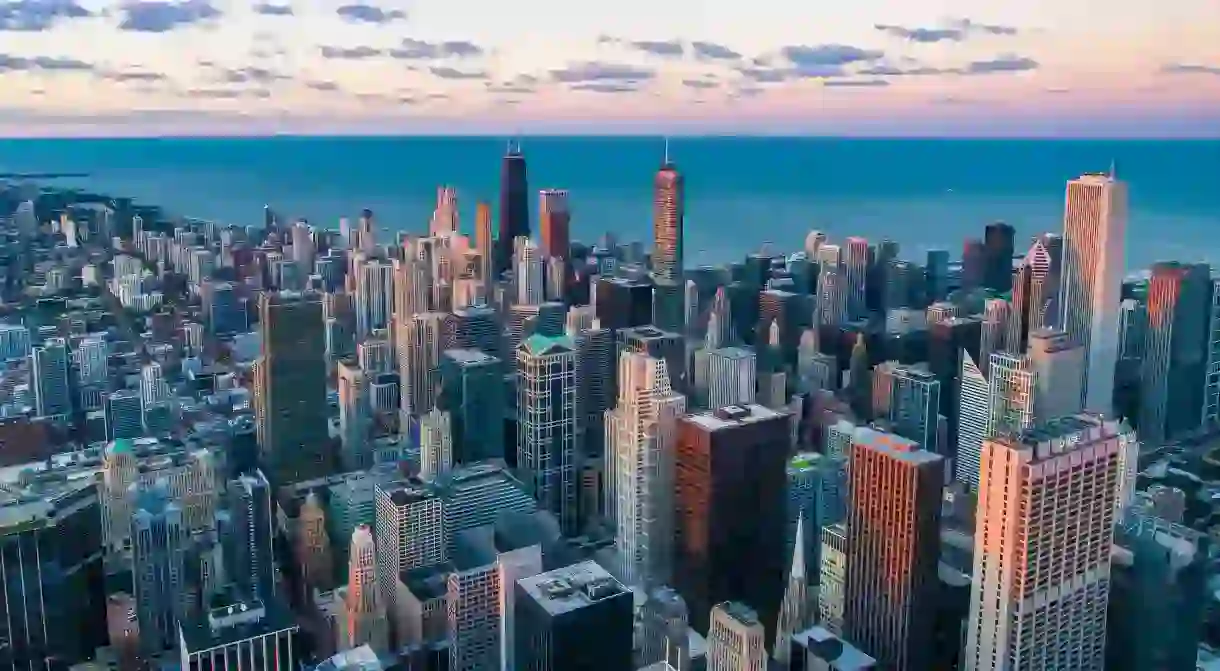8 Very Unusual Museums to Visit in Chicago

While the Art Institute of Chicago, the Field Museum, and the Museum of Contemporary Art are some of the most iconic art stops in Chicago, the city is also full of ancient amputation devices and the largest collection of toby jugs in the world. This unusual art scene often gets overshadowed, but it is definitely worth the visit. To help you get off the typical museum path, we’ve compiled a list of the ten most unusual museums in the Windy City.
Planning your visit to the Windy City? Check out this collection of guided tours in Chicago.
International Museum of Surgical Science
The International Museum of Surgical Science holds over 7,000 artefacts documenting the history of surgery. Inside, you can find an Austrian amputation saw circa 1500, iron lungs, and early heart valves. In addition, there is a Hippocrates sculpture and a room full of cadaver murals. It’s not exactly for the faint of heart, but it’s a fascinating museum and the perfect place for aspiring surgeons. Try to go on a Tuesday when entrance is free, otherwise tickets cost $15.
The Money Museum
Do you know who is on the face of the $10,000 bill? Well, you can find out inside the Money Museum, located in the Federal Reserve Bank. (Spoiler alert: It’s Salmon P. Chase, Abraham Lincoln’s treasury secretary.) In the museum, there are thousands of rare and old coins, a million-dollar briefcase, and a giant rotating cube filled with one million dollars. On your way out, you’ll receive a bag with 300 dollars. Unfortunately, the money is shredded and uncirculated, so good luck trying to actually put it to use.
National Museum of Mexican Art
Located in the Pilsen neighborhood, the National Museum of Mexican Art is the largest Latino museum in the United States. With permanent collections, rotating exhibits, performing arts-showcases, and an incredible Day of the Dead exhibition, you will find yourself completely immersed in the vibrant Mexican culture. Be sure to grab a delicious Mexican meal while you’re in the neighborhood.
Pert Cleaners and Antique Fabricare Museum
Not only is Pert Cleaners one of the best dry cleaners in the city, but it is also part museum. When you drop off your pants, make sure to walk around and look through old-fashioned detergent, ironing boards, and steam machines to get a grasp on the unique history of dry cleaning.
Busy Beaver Button Museum
The Busy Beaver Button Company creates custom buttons for businesses all over Chicago and the USA, but the office also holds a small museum inside of the headquarters. From Cabbage Patch Kids to Anti-Nixon Vietnam to Brother Buzz Club Member buttons, there are thousands of buttons to look through. Both a lesson in history and a lesson in art, you can enjoy the framed cases of buttons lining the walls while watching the workers continue to design and create buttons at their desks.
Shit Fountain
This one is not quite a museum, but it is certainly an unusual work of art and quite literally, a piece of crap. Chicago artist Jerzy S. Kenar created the bronze coil fountain in an effort to clean up the park and get dog owners to pick up after their pets. Meant to be ironic and humorous, the fountain makes for an entertaining photo to send to your friends, perfectly captioned with the poop emoji.
American Toby Jug Museum
This museum filled wall-to-wall with toby jugs is certainly one of a kind. A toby jug is a ceramic pitcher figured and modeled into the form or face of a popular character – historical, fictional, or generic. The museum holds the world’s largest collection of toby jugs, containing over 8,000 different designs. You’ll recognize quite a few of the faces, including John F. Kennedy and Joseph Stalin.
The Noble Seymour Crippen House
While many believe the Clarke House to be the oldest house in Chicago, that title actually belongs to the Noble Seymour Crippen House. The southern wing of the now mansion was built in 1833 and is located in the Norwood Park community area. Inside, you can find period-decorated bedrooms, photographs of Norwood Park’s growth from a farming settlement to an urban neighborhood, and even read entries from Margaret Crippen’s journal.













